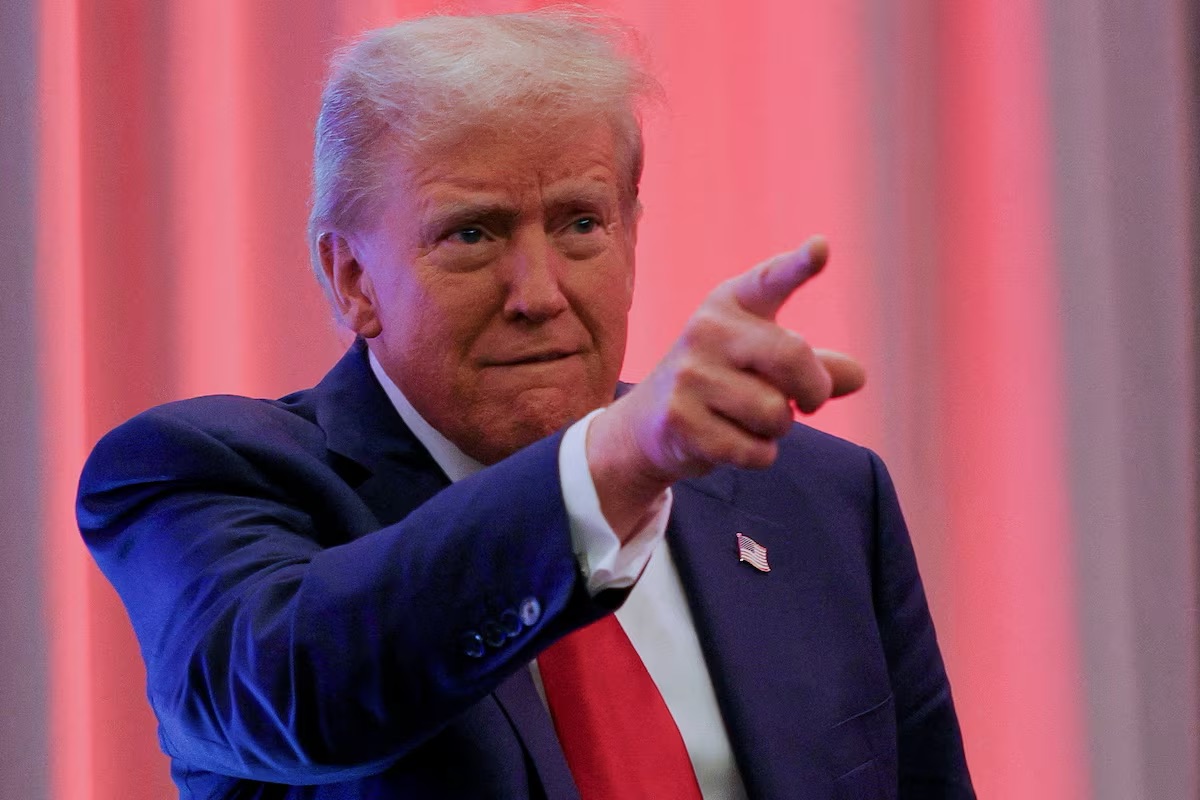
WASHINGTON, Nov 25 (Reuters) – The formal transition process between U.S. President Joe Biden and President-elect Donald Trump has not yet begun. This critical process, typically spanning several months, involves the executive branch sharing key information with incoming officials on issues ranging from foreign policy to ongoing investigations.
Trump, set to be inaugurated on Jan. 20, has not signed the necessary transition documents with Biden. This delay is preventing officials from 15 federal agencies—including the Treasury, State, Energy, Agriculture, and Transportation Departments—from briefing Trump’s incoming team.
The unusual circumstances could disrupt government operations, critics warn, and raise concerns about whether Trump’s appointees will meet ethics standards.
Why is the transition important?
The transition enables the incoming president’s team to access national security briefings and federal agencies, laying the groundwork for the complex task of assuming control of the federal government by Jan. 20, 2025.
What documents has Trump not signed?
The Trump team has yet to sign two key agreements required by the Presidential Transition Act to initiate the transition process: a memorandum of understanding with the General Services Administration (GSA) and another with the White House.
The GSA agreement provides the transition team with access to office space, IT services, and other facilities. The White House agreement grants access to federal employees and agency documents. Both agreements also include a stringent ethics pledge, requiring Trump and his team to commit to avoiding conflicts of interest once he takes office.
According to the 1963 law governing presidential transitions, Trump’s team was required to submit the ethics pledge by Oct. 1 to qualify for transition funding.
Why hasn’t Trump signed the agreements?
Two sources familiar with the situation say the delay stems from Trump’s reluctance to divest from his business interests, as required under the ethics guidelines.
Three days after his election victory, Trump publicly stated on Truth Social that he had no plans to sell his shares in Trump Media & Technology Group (DJT.O), posting: “I HAVE NO INTENTION OF SELLING!”
Although the Trump transition team has privately drafted its own ethics and conflict-of-interest guidelines, sources indicate these documents fail to meet the requirements of the Presidential Transition Act. They also lack clear provisions detailing how Trump plans to address conflicts of interest during his presidency.
Not Signing the Transition Documents
By not signing the required agreements, President-elect Trump avoids disclosing the names of private donors funding his transition, allowing him to raise unlimited amounts of money. The Presidential Transition Act mandates these donors be disclosed and caps contributions at $5,000.
While the Trump transition team has stated the president-elect intends to sign the documents, their focus remains on selecting and vetting candidates. However, it is unclear when Trump will complete the ethics pledge. According to the team, all transition staff have signed a robust ethics pledge as a prerequisite for participation.
“The Trump-Vance transition lawyers continue to constructively engage with the Biden-Harris administration lawyers regarding all agreements contemplated by the Presidential Transition Act,” said Brian Hughes, a Trump transition spokesperson.
What does the law say about conflicts of interest?
The U.S. federal government, funded by approximately $7 trillion annually in taxpayer money, is governed by strict ethics laws prohibiting officials from using their positions for personal gain. In 2019, Congress amended these laws, requiring presidential candidates to publicly post an ethics plan before the election. This amendment, driven by bipartisan concerns over ethical issues during Trump’s first term, aims to ensure transparency and accountability.
However, ethics experts note that the president is exempt from conflict-of-interest laws due to the vast scope of the role. As such, the system relies on the president’s good faith to separate personal and national interests.
The Supreme Court’s recent ruling granting Trump immunity from prosecution for official acts within his constitutional authority during his presidency has further blurred these norms, raising questions about enforcement.
Trump’s Assets and Conflicts
Trump’s financial interests include:
• A $3.76 billion stake in Trump Media & Technology Group.
• Cryptocurrency investments.
• Real estate holdings, both domestic and international.
• A family business portfolio run by Eric Trump, featuring hotels, golf courses, resorts, and commercial properties in New York City.
What about security clearances?
The Trump transition team has not signed a memorandum of understanding with the Department of Justice, which would enable the FBI to conduct background checks on nominees. The team has also not provided the FBI with names of prospective national security personnel who may require access to classified information.
Instead, private firms are reportedly vetting candidates, which could mean federal law enforcement never reviews Trump appointees. While unconventional, the president ultimately has the authority to select and nominate officials and to determine who conducts their background checks.
What happened during Trump’s first term?
In 2017, Trump pledged to place his business interests in a trust managed by his eldest sons to avoid potential conflicts of interest. Despite this, he frequently faced criticism from the Office of Government Ethics (OGE) for potential conflicts involving his businesses.
The OGE’s then-director, Walter Shaub, resigned six months into Trump’s presidency, citing repeated ethical violations.
Concerns from ethics experts
Experts warn that Trump could face little to no ethics oversight during a second term, increasing the risk of conflicts of interest. They argue that foreign governments and corporations could leverage Trump’s business holdings to influence U.S. policy.
For example, by the end of his first term, at least 20 foreign governments—including Saudi Arabia and China—had collectively spent more than $7.8 million at Trump-owned properties, according to a congressional report.
These practices, watchdog groups argue, undermine public trust in government. During Trump’s last administration, trust in government fell to a 60-year low, with only 17% of Americans expressing confidence in federal institutions.
